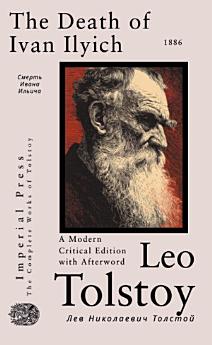The Death of Ivan Ilyich
Über dieses E-Book
"The Death of Ivan Ilyich," or "Смерть Ивана Ильича" in Russian, was composed by Leo Tolstoy between 1882 and 1886, with its initial publication occurring in 1886. This work, considered a summit of Tolstoy's shorter literary forms and included in the World Library series, recounts the agonizing demise of a mid-level judicial official. The narrative begins with colleagues discussing Ivan Ilyich Golovin's death, each contemplating personal gain, a detail that underscores the author's critique of the era's self-serving societal norms. The story then shifts to a detailed, naturalistic account of Ivan Ilyich's illness, which begins with a fall while hanging curtains in his "charming little apartment," a symbol of his "decent and pleasant" life. This seemingly minor incident precipitates an inexorable physical decline, though the exact diagnosis remains unknown. The prototype for Ivan Ilyich was a friend of Tolstoy's, Ivan Ilyich Mechnikov, a court official, whose death provided material for the story.
The work explores the judge's internal struggle as he confronts his impending death, questioning the meaning of his existence. His life, previously deemed "most simple and ordinary," is revealed as "most terrible" in its superficiality. The narrative culminates in Ivan Ilyich's three-day agony, during which he experiences a metaphorical struggle within a "black sack" before a sudden breakthrough to light and true happiness, guided by his peasant servant Gerasim, a character embodying a connection to nature and authentic life. This novella, translated into German as "Der Tod des Iwan Iljitsch" and recognized as a masterpiece of world literature, delves into themes of existential dread, the falsity of societal conventions, and the search for genuine meaning in the face of mortality, influencing philosophers like Heidegger.
This critical reader's edition presents a modern translation of the original manuscript, crafted for the modern reader with clean, contemporary language and simplified sentence structures that clarify his complex Russian phrasing and specific antiquated references. Supplementary material enriches the text with autobiographical, historical, and linguistic context, including an afterword by the translator on Tolstoy’s personal history, impact, and intellectual legacy, an index of the philosophical concepts he employs—emphasizing Existentialism and influence by Schopenhauer—a comprehensive chronological list of his published writings, and a detailed timeline of his life, highlighting the personal relationships that shaped his philosophy.











